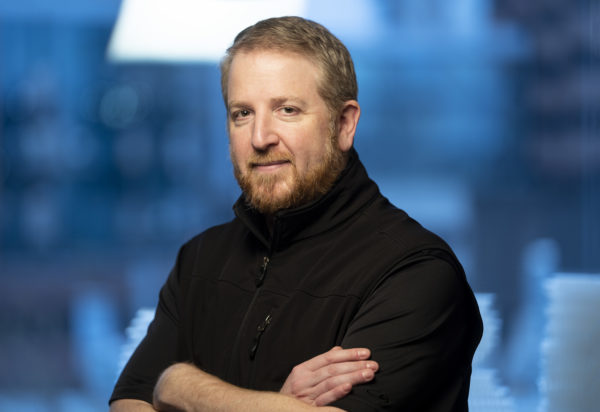From a grassroots group to a trans-institutional program, the Vanderbilt Microbiome Initiative has grown in the last half-decade to include more than 190 members with an ambitious goal: to establish Vanderbilt as a world-renowned leader in the future of microbiome research.
VMI started as a collaboration between a handful of faculty and students, and now offers education and training opportunities, assembles communities, provides pilot funding, and supports novel research for study of the microbiome (the assemblage of microorganisms such as bacteria, fungi and viruses that are crucial to sustaining all life ecosystems on earth).
Now, the organization is receiving attention for its role as a standard bearer for other microbiome programs, thanks to a new article on the importance and emergence of microbiome centers – academic hubs of microbiome-related research. The article appears today in the journal Nature Microbiology.
Seth Bordenstein, professor of biological sciences and director of the Vanderbilt Microbiome Initiative, is co-author of the article. Together with invited representatives from notable microbiome centers at more than 30 research universities across the United States who met last summer at the Beckman Center of the National Academies of Sciences, Bordenstein argues for the establishment and support of these centers as crucial to engaging the transdisciplinary work that lies ahead.
“The field of microbiome scholarship is in the first decade of what will surely be a century of intensive interest from the scientific community,” says Bordenstein. “Our aim at the VMI is to harness and advance our world-class scholarship in the field, establish Vanderbilt as a leader in this rapidly emerging space and develop new and improved research and education programs that provide positive outcomes for students, trainees, and faculty within and beyond the campus.”
First uncovered as a result of the discovery of DNA sequencing, the world of microbiomes is a new inflection point for biologists – yielding first significant interest in environmental microbiomes and, most recently, interest into how microbes impact the functioning and health of our own bodies and countless other organisms.

Despite its nascent nature, the potential impact of microbiome research is a large driver, according to the authors of the paper, of their encouragement for developing and supporting organized centers for microbiome studies, such as the VMI. Other drivers alluded to in the paper include a need to increase overall capacity for new collaboration and research, and a more holistic approach to research which shares and builds on knowledge across institutions.
Elsewhere in the paper, the authors highlight how microbiome centers should serve not only professional research faculty, but also other members of university campuses and local communities.
At the VMI, students like Vanderbilt undergraduate researcher Cami Westlake were first drawn into the world of microbiomes through that cross-campus and community focus. In her case, it was through the annual VMI “Microbiome Boot Camp,” a program offering training in experimental design and computational analytics.
“In one of my first college lectures, Professor Bordenstein invited our entire introductory biology class to attend the first VMI seminar of that year, after which I continued attending VMI events,” Westlake notes. “The amount of interaction with graduate students, postdoctoral scholars, and faculty members as a mere freshman was remarkable, and given that the microbiome is such a young field, I realized how many opportunities there were for impactful discovery.”
Inspired by the networks of biomes themselves, and in an effort to share knowledge and ideas among scientists and microbiome centers, the authors put out an open call for institutions to standardize, support and collaborate on the mission of the new microbiome centers, and to synthesize efforts at www.microbiomecenters.org.
“Through continued investment in our Vanderbilt students and faculty, and in the groundbreaking work to come as a result of our initiative, we hope to both advance a nationwide microbiome centers consortium and set an example for other microbiome centers around the world,” adds Bordenstein. “From the environment to our human bodies, microbiomes are the next leap to gaining a deeper and synthetic understanding of our natural, living world.”